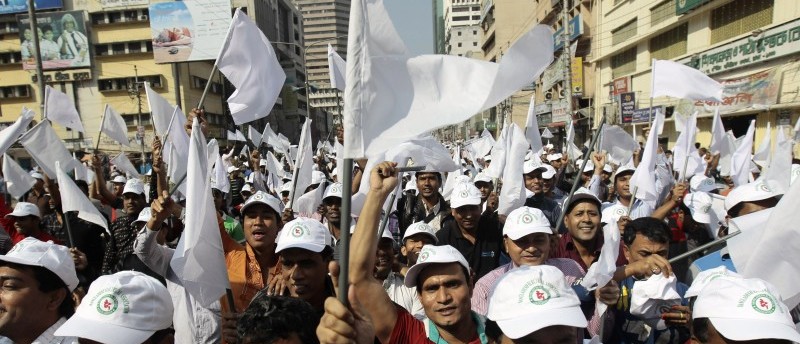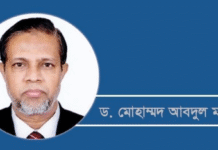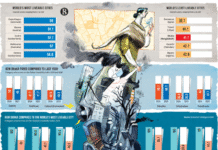Bangladesh recently held its tenth parliamentary elections. Sadly, the results were marred by senseless violence and a boycott by the opposition parties. The Bangladesh Nationalist Party (BNP) and its chief ally Jamaat-i-Islam unleashed a wave of violence aimed at depriving the people of Bangladesh their hard-fought democratic right to vote.
More than 500 schools, acting as polling stations, were set on fire and several polling officers were murdered. Members of the minority Hindu community, traditional supporters of the secular ruling Awami League, were targeted in large numbers with hundreds of their homes and businesses razed to the ground. Opposition leaders must accede to the demands of the people and prove their commitment to democracy by immediately ceasing their campaign of terror. They must turn their backs on violence and return to democracy.
Over the past five years, Bangladesh’s Election Commission oversaw an unprecedented 5,828 elections without facing any complaints of wrongdoing or mismanagement. Over 65,000 people’s representatives were elected, including many from opposition parties. The opposition never challenged any of these election results. This was only possible because the commission was empowered and autonomous.
Instead of participating in the recent election, BNP-Jamaat demanded an unelected caretaker government, a relic of Bangladesh’s earlier political experiments. Aside from being declared unconstitutional by the Supreme Court in 2011, the last caretaker government failed to hold elections and spurred a military takeover.
Bangladesh should proceed smoothly from one democratic election to the next, and Prime Minister Sheikh Hasina called for the opposition to join discussions in Parliament on an election-time government. Those calls were rebuffed and met with ever-increasing levels of violence. In May, the Prime Minister offered the opposition an opportunity to join an all-party interim government to oversee the polls. In response, the leader of the opposition, Begum Khaleda Zia, joined forces with extremists (whose demands included confining women to their homes) in an attempt to overthrow the government by laying siege to the capital city of Dhaka. Despite causing millions of dollars in damage, they failed because they lacked public support and because of the government’s unwavering commitment to protecting the lives and property of its citizens.
At this point the government would have been justified in withdrawing its offer, but it did not. BNP-Jamaat was offered its pick of ministries in the interim government and the Prime Minister appealed to the leader of the opposition to end her destructive campaign of strikes and return to Parliament. Again, the response was an even deadlier round of strikes with buses being torched and passengers being burned alive.
The BNP must explain to the world and to the people of Bangladesh its reason for depriving the country of a competitive election. The BNP-Jamaat combination must also explain why it should not be held accountable for the murder of innocent people, including Hindu and Christian minorities, and the senseless mayhem and destruction of property.
Source: Daily Caller










